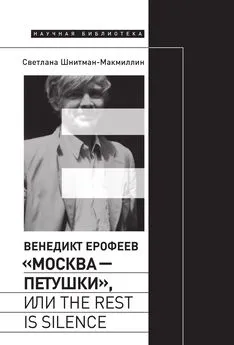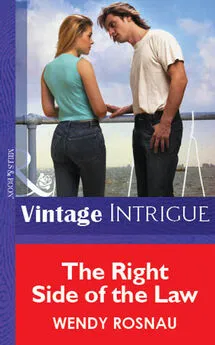W. Ainsworth - Rookwood
- Название:Rookwood
- Автор:
- Жанр:
- Издательство:неизвестно
- Год:неизвестен
- ISBN:нет данных
- Рейтинг:
- Избранное:Добавить в избранное
-
Отзывы:
-
Ваша оценка:
W. Ainsworth - Rookwood краткое содержание
Rookwood - читать онлайн бесплатно полную версию (весь текст целиком)
Интервал:
Закладка:
"Without marriage," interrupted Sybil, angrily.
"True," returned Peter; "yet not maintain it. May win it, but not wear it. You have said truly, the house of Rookwood is a fated house; and it hath been said likewise, that if he wed not one of his own kindred—that if Rook mate not with Rook, his possessions shall pass away from his hands. Listen to this prophetic quatrain:
"When the stray Rook shall perch on the topmost bough,
There shall be clamour and screeching, I trow,
But of right to, and rule of the ancient nest,
The Rook that with Rook mates shall hold him possest.
You hear what these quaint rhymes say. Luke is doubtless the stray Rook, and a fledgling hath flown hither from a distant country. He must take her to his mate, or relinquish her and 'the ancient nest' to his brother. For my own part, I disregard such sayings. I have little faith in prophecy and divination. I know not what Eleanor Mowbray, for so she is called, can have to do with the tenure of the estates of Rookwood. But if Luke Rookwood, after he has lorded it for a while in splendour, be cast forth again in rags and wretchedness, let him not blame his grandsire for his own want of caution."
"Luke, I implore you, tell me," said Sybil, who had listened, horror-stricken, to the sexton, shuddering, as it were, beneath the chilly influence of his malevolent glance, "is this true? Does fate depend upon Eleanor Mowbray? Who is she? What has she to do with Rookwood? Have you seen her? Do you love her?"
"I have never seen her," replied Luke.
"Thank Heaven for that!" cried Sybil. "Then you love her not?"
"How were that possible?" returned Luke. "Do I not say I have not seen her?"
"Who is she, then?"
"This old man tells me she is my cousin. She is betrothed to my brother, Ranulph."
"How?" ejaculated Sybil. "And would you snatch his betrothed from your brother's arms? Would you do him this grievous wrong? Is it not enough that you must wrest from him that which he hath long deemed his own? And if he has falsely deemed it so, it will not make his loss the less bitter. If you do thus wrong your brother, do not look for happiness; do not look for respect; for neither will be your portion. Even this stony-hearted old man shrinks aghast at such a deed. His snake-like eyes are buried on the ground. See, I have moved even him ."
And in truth Peter did appear, for an instant, strangely moved.
"'Tis nothing," returned he, mastering his emotion by strong effort. "What is all this to me? I never had a brother. I never had aught—wife, child, or relative—that loved me. And I love not the world, nor the things of the world, nor those that inhabit the world. But I know what sways the world and its inhabitants; and that is SELF! AND SELF-INTEREST! Let Luke reflect on this. The key to Rookwood is Eleanor Mowbray. The hand that grasps hers, grasps those lands: thus saith the prophecy."
"It is a lying prophecy."
"It was uttered by one of your race."
"By whom?"
"By Barbara Lovel," said Peter, with a sneer of triumph.
"Ha!"
"Heed him not," exclaimed Luke, as Sybil recoiled at this intelligence. "I am yours."
"Not mine! not mine!" shrieked she; "but oh! not hers !"
"Whither go you?" cried Luke, as Sybil, half bewildered, tore herself from him.
"To Barbara Lovel."
"I will go with you."
"No! let me go alone. I have much to ask her; yet tarry not with this old man, dear Luke, or close your cars to his crafty talk. Avoid him. Oh, I am sick at heart. Follow me not: I implore you, follow me not."
And with distracted air she darted amongst the mouldering cloisters, leaving Luke stupefied with anguish and surprise. The sexton maintained a stern and stoical composure.
"She is a woman, after all," muttered he; "all her high-flown resolves melt like snow in the sunshine, at the thought of a rival. I congratulate you, grandson Luke; you are free from your fetters."
"Free!" echoed Luke. "Quit my sight; I loathe to look upon you. You have broken the truest heart that ever beat in woman's bosom."
"Tut, tut," returned Peter; "it is not broken yet. Wait till we hear what old Barbara has got to say; and, meanwhile, we must arrange with Dick Turpin the price of that certificate. The knave knows its value well. Come, be a man. This is worse than womanish."
And at length he succeeded, half by force and half by persuasion, in dragging Luke away with him.
| Contents |
CHAPTER IV
BARBARA LOVEL
LIKE a dove escaped from the talons of the falcon, Sybil fled from the clutches of the sexton. Her brain was in a whirl, her blood on fire. She had no distinct perception of external objects; no definite notion of what she herself was about to do, and glided more like a flitting spirit than a living woman along the ruined ambulatory. Her hair had fallen in disorder over her face. She stayed not to adjust it, but tossed aside the blinding locks with frantic impatience. She felt as one may feel who tries to strain his nerves, shattered by illness, to the endurance of some dreadful, yet necessary pain.
Sybil loved her granddame, old Barbara; but it was with a love tempered by fear. Barbara was not a person to inspire esteem or to claim affection. She was regarded by the wild tribe which she ruled as their queen-elect, with some such feeling of inexplicable awe as is entertained by the African slave for the Obeah woman. They acknowledged her power, unhesitatingly obeyed her commands, and shrank with terror from her anathema, which was indeed seldom pronounced; but when uttered, was considered as doom. Her tribe she looked upon as her flock, and stretched her maternal hand over all, ready alike to cherish or chastise; and having already survived a generation, that which succeeded, having from infancy imbibed a superstitious veneration for the "cunning woman," as she was called, the sentiment could never be wholly effaced.
Winding her way, she knew not how, through roofless halls, over disjointed fragments of fallen pillars, Sybil reached a flight of steps. A door, studded with iron nails, stayed her progress; it was an old strong oaken frame, surmounted by a Gothic arch, in the keystone of which leered one of those grotesque demoniacal faces with which the fathers of the Church delighted to adorn their shrines. Sybil looked up—her glance encountered the fantastical visage. It recalled the features of the sexton, and seemed to mock her—to revile her. Her fortitude at once deserted her. Her fingers were upon the handle of the door. She hesitated; she even drew back, with the intention of departing, for she felt then that she dared not face Barbara. It was too late—she had moved the handle. A deep voice from within called to her by name. She dared not disobey that call—she entered.
The room in which Sybil found herself was the only entire apartment now existing in the priory. It had survived the ravages of time; it had escaped the devastation of man, whose ravages outstrip those of time. Octagonal, lofty, yet narrow, you saw at once that it formed the interior of a turret. It was lighted by a small oriel window commanding a lovely view of the scenery around, and panelled with oak, richly wrought in ribs and groins; and from overhead depended a moulded ceiling of honeycomb plaster-work. This room had something, even now, in the days of its desecration, of monastic beauty about it. Where the odour of sanctity had breathed forth, the fumes of idolatry prevailed; but imagination, ever on the wing, flew back to that period (and a tradition to that effect warranted the supposition) when, perchance, it had been the sanctuary and the privacy of the prior's self.
Wrapped in a cloak composed of the skins of various animals, upon a low pallet, covered with stained scarlet cloth, sat Barbara. Around her head was coiffed, in folds like those of an Asiatic turban, a rich, though faded shawl, and her waist was encircled with the magic zodiacal zone—proper to the sorceress—the Mago Cineo of the Cingara (whence the name of Zingaro, according to Monçada), which Barbara had brought from Spain. From her ears depended long golden drops, of curious antique fashioning; and upon her withered fingers, which looked like a coil of lizards, were hooped a multitude of silver rings, of the purest and simplest manufacture. They seemed almost of massive unwrought metal. Her skin was yellow as the body of a toad; corrugated as its back. She might have been steeped in saffron from her finger-tips, the nails of which were of the same hue, to such portions of her neck as were visible, and which was puckered up like the throat of a turtle. To look at her, one might have thought the embalmer had experimented her art upon herself. So dead, so bloodless, so blackened seemed the flesh, where flesh remained, leather could scarce be tougher than her skin. She seemed like an animated mummy. A frame, so tanned, appeared calculated to endure for ages; and, perhaps, might have done so. But alas! the soul cannot be embalmed. No oil can re-illumine that precious lamp! And that Barbara's vital spark was fast waning, was evident, from her heavy, bloodshot eyes, once of a swimming black, and lengthy as a witch's, which were now sinister and sunken.
The atmosphere of the room was as strongly impregnated as a museum with volatile odours, emitted from the stores of drugs with which the shelves were loaded, as well as from various stuffed specimens of birds and wild animals. Barbara's only living companion was a monstrous owl, which, perched over the old gipsy's head, hissed a token of recognition as Sybil advanced. From a hook, placed in the plaster roof, was suspended a globe of crystal glass, about the size and shape of a large gourd, filled with a pure pellucid liquid, in which a small snake, the Egyptian aspic, described perpetual gyrations.
Dim were the eyes of Barbara, yet not altogether sightless. The troubled demeanour of her grandchild struck her as she entered. She felt the hot drops upon her hand as Sybil stooped to kiss it; she heard her vainly-stifled sobs.
"What ails you, child?" said Barbara, in a voice that rattled in her throat, and hollow as the articulation of a phantom. "Have you heard tidings of Luke Bradley? Has any ill befallen him? I told you thou wouldst either hear of him or see him this morning. He is not returned, I see. What have you heard?"
"He is returned," replied Sybil, faintly; "and no ill hath happened to him."
"He is returned, and you are here," echoed Barbara. "No ill hath happened to him , thou sayest—am I to understand there is ill to you ?"
Sybil answered not. She could not answer.
"I see, I see," said Barbara, more gently, her head and hand shaking with paralytic affection: "a quarrel, a lovers' quarrel. Old as I am, I have not forgotten my feelings as a girl. What woman ever does, if she be woman? and you, like your poor mother, are a true-hearted wench. She loved her husband, as a husband should be loved, Sybil; and though she loved me well, she loved him better, as was right. Ah! it was a bitter day when she left me for Spain; for though, to one of our wandering race, all countries are alike, yet the soil of our birth is dear to us, and the presence of our kindred dearer. Well, well, I will not think of that. She is gone. Nay, take it not so to heart, wench. Luke has a hasty temper. 'Tis not the first time I have told you so. He will not bear rebuke, and you have questioned him too shrewdly touching his absence. Is it not so? Heed it not. Trust me, you will have him seek your forgiveness ere the shadows shorten 'neath the noontide sun."
"Alas! alas!" said Sybil, sadly, "this is no lovers' quarrel, which may, at once, be forgotten and forgiven—would it were so!"
Читать дальшеИнтервал:
Закладка:

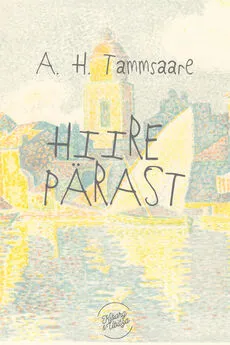
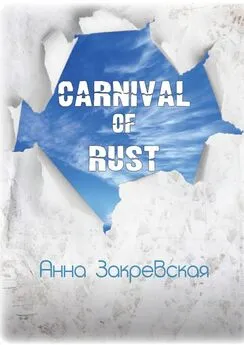
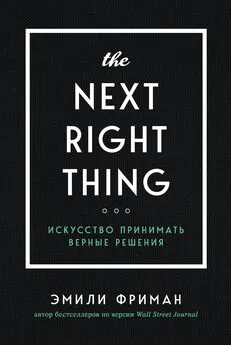
![Rakot - Апостол Новой Веры. Том 1 [СИ]](/books/1061842/rakot-apostol-novoj-very-tom-1-si.webp)
![Rakot - Укуренный мир. Том 3 [СИ]](/books/1073038/rakot-ukurennyj-mir-tom-3-si.webp)


